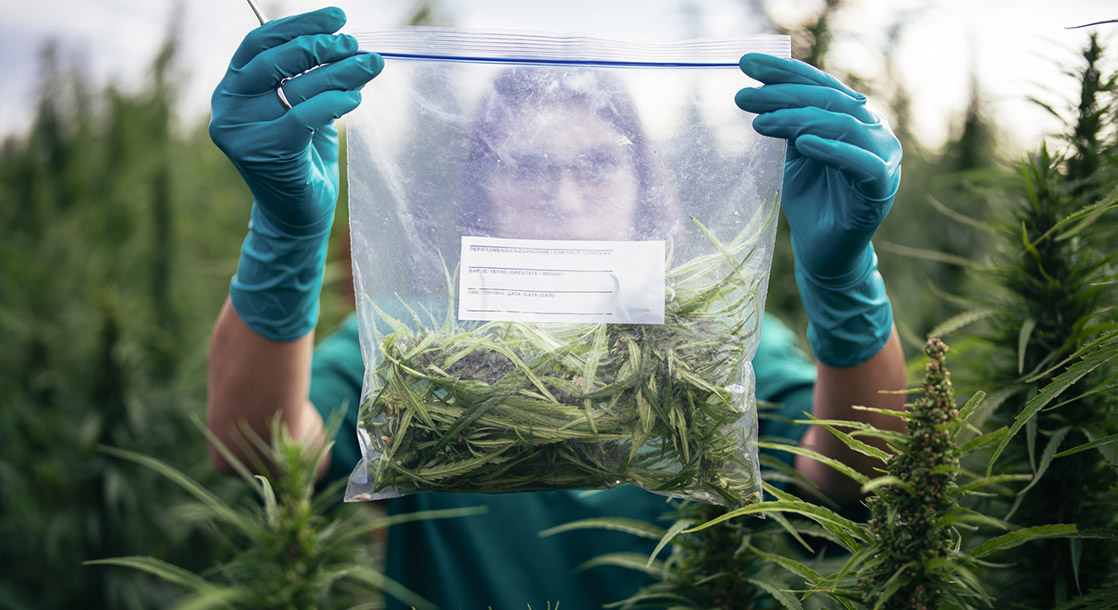A new opioid bill filed by Republican lawmakers contains a clause that would actually make it easier for researchers to study weed, psychedelics, and other Schedule I drugs.
Earlier this month, Sen. Bill Cassidy (R-LA) and Rep. Morgan Griffith (R-VA) filed identical versions of the Halt All Lethal Trafficking of (HALT) Fentanyl Act in their respective chambers of Congress. Last year, lawmakers temporarily reclassified fentanyl, a synthetic opioid responsible for 64 percent of all overdose deaths in the US, as a Schedule I drug. This temporary rescheduling will expire next February, but the HALT bill would make that reclassification permanent.
“The opioid epidemic continues to touch every state and every community,” said Senator Richard Burr (R-NC), who is cosponsoring the bill in the Senate, in a statement. “Unfortunately during the pandemic, we’ve seen a staggering increase in drug overdose deaths, primarily caused by extremely potent and deadly fentanyl related substances.”
“One way we can help to curb the influx of fentanyl on the illicit drug market is to deter producers in China and traffickers from Mexico from favoring these lethal products,” Burr added. “This legislation will do just that by classifying fentanyl related substances as Schedule I, enabling law enforcement to prosecute distribution and supply chains and keeping American communities safe from this deadly drug.”
Some medical professionals have criticized the bill, as fentanyl still does have some acceptable medical use. Researchers have also argued that the extreme restrictions against Schedule I drugs make it very difficult to conduct clinical studies on these compounds, which could prevent them from creating less addictive analogs of fentanyl.
To resolve these concerns, the HALT bill would update the research restrictions for Schedule I drugs to match the less-restrictive requirements for Schedule II drugs. Under current law, every single researcher involved in any clinical study involving Schedule I drugs must obtain an individual approval from the DEA. Under the new rules, a single institution could apply for a single permit, allowing all of its affiliated researchers to legally participate.
Similarly, the bill would allow an institution that is conducting research at multiple locations to apply for one single permit, rather than requiring each location to apply separately. In some cases, institutions would be allowed to manufacture small quantities of prohibited drugs for research purposes, although this provision would not allow researchers to grow their own weed.
These provisions would change the research criteria for all Schedule I drugs, not just fentanyl. So, this bill would also remove several serious hurdles that make it difficult for researchers to study cannabis, psychedelics, MDMA, or other banned substances. Until this year, scientists wishing to study cannabis have been forced to source weed from the University of Mississippi, but the weed grown by this institution is so notoriously poor-quality that it has compromised several important studies.
The new bill is indicative of the fact that conservative lawmakers and federal officials are finally recognizing the value of conducting serious research into illegal drugs. Congress just managed to slip a provision into President Biden’s new infrastructure bill that will allow researchers to buy top-shelf weed from state-legal dispensaries, rather than being forced to rely on low-quality government schwag.
And even the DEA, an agency renowned for stonewalling research into cannabis and psychedelics, is welcoming further investigation into the medical use of these compounds. This year, the DEA vastly expanded its legal quotas for research-grade Schedule I drugs, doubling its production of legal weed and psilocybin and increasing its MDMA quota by 6,300 percent. Next year, the agency is expanding those quotas even further, making huge quantities of pot, LSD, psilocybin, MDMA, DMT, and other prohibited compounds available for clinical research.











